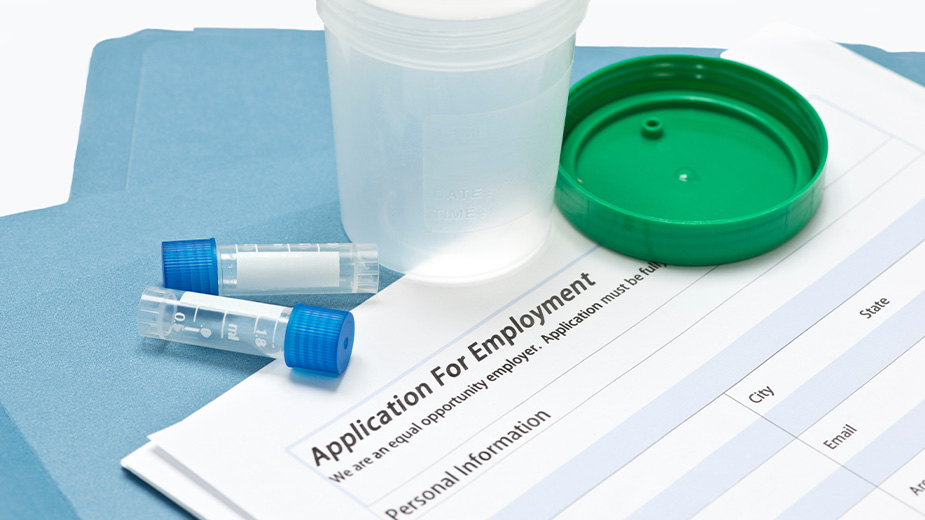Ohio Workplace Policies on Marijuana Begin to Evolve
By Mara O’Malley for Kent State News Lab
Ohio News Connection
Though it is now legal for Ohioans to use cannabis, the 2023 passage of Issue 2 does not prevent employers from drug testing job applicants and employees and instituting zero-tolerance policies. Employers in Ohio are still permitted to penalize workers who use, possess or distribute marijuana.
But the City of Cleveland announced in December that it would eliminate pre-employment drug tests for some city jobs.
“Pre-employment testing can oftentimes create obstacles in filling open positions by preventing otherwise qualified candidates from even applying,” Matthew Cole, director of human resources for the city of Cleveland, said in an email. “These policy updates are more cost-effective and will ultimately help us widen the applicant pool for several city positions.”
Katherine Mills, a Cleveland-based employment attorney at Fisher Phillips, said companies can still enforce pre-employment, random or reasonable suspicion testing of all employees.
“Each employer will have to evaluate their business needs and balance that against what employees may choose or opt to do outside of work,” Mills said. “The bill language does specifically state, though, that employers do not have to permit cannabis use that impacts the workplace.”
Cleveland says it intends to maintain a drug-free workplace by making it known that employees are required to be fit for work and will be prohibited to work while impaired, meaning that they must be free from any kind of alcohol and drugs, including marijuana.
“It’s really going to be on a case-by-case basis for employers to evaluate their situation and then determine what is going to be the best course of action, both for the business and for their employees,” Mills said.
The city of Cleveland has decided to drug test only for certain positions, like those identified as safety or security jobs or those that fall under the federal Department of Transportation.
“We are constantly evaluating our policies to ensure they align with the needs and desires of both our current and prospective employees,” Cole said via email.
Whatever a company decides, Mills says it needs to update its employee handbook and published policies so that employees know that even though marijuana is legal, it may still be prohibited in their workplace.
The National Organization for the Reform of Marijuana Laws advocates for cannabis legalization. It says some states that have legalized marijuana go further and prohibit the firing or hiring of an employee based on a drug test.
Several states, including California, Connecticut, Minnesota, Montana, New Jersey, New York and Rhode Island, prohibit most employers from refusing to hire or from firing someone based solely on a positive drug test for marijuana, according to NORML. Three other states – Michigan, Nevada, and Washington – prohibit most employers from refusing to hire someone based solely upon a positive drug test.
“What good is this law allowing for the legalization for production, sale and use of marijuana if these people who engage in that activity can lose their job?” said Paul Armentano, deputy director of NORML.
Armentano said many states around the country have had marijuana laws in place for years and have not seen occupational accidents or absenteeism skyrocket.
“There isn’t a single state that has ever legalized marijuana for either medical purposes or adult use purposes that has ever repealed or even rolled back their legalization law,” Armentano said.
Similar policies have been put in place around the country among multiple states. Through studies that have been done, the work-place performance has not been affected from after-work marijuana use.
Workplace policies will have to continue to evolve as Ohio figures out recreational marijuana, Mills said.
“All the regulations of things are still being developed,” Mills said. “We’re kind of in this gray space of, it’s technically legal but there is no dispensary that adults can currently walk into and buy adult-use marijuana.”
During this time, Fisher Phillips recommends that companies review and consider updating their drug testing protocols. Whether or not they make changes, employers should update their employee handbooks so that employees know the company’s stance on cannabis use.
Beyond that, companies can have last chance policies – in which an employee agrees to seek substance abuse treatment and refrain from further use of alcohol or drugs to keep their job – and substance abuse programs. The law firm also suggests that employers offer training, stay up to date on changing regulations and clearly communicate their expectations to employees.
“We can definitely help find that sweet spot of, you know, respecting the ever-changing landscape that we exist in while also prioritizing both workplace needs and safety concerns,” Mills said.
Mara O’Malley wrote this article for Kent State News Lab. This collaboration is produced in association with Media in the Public Interest and funded in part by the George Gund Foundation.
Michigan, Nevada and Washington prohibit most employers from refusing to hire someone based solely on a positive drug test. (Sherry Young | Adobe Stock)
Published by The Business Journal, Youngstown, Ohio.



